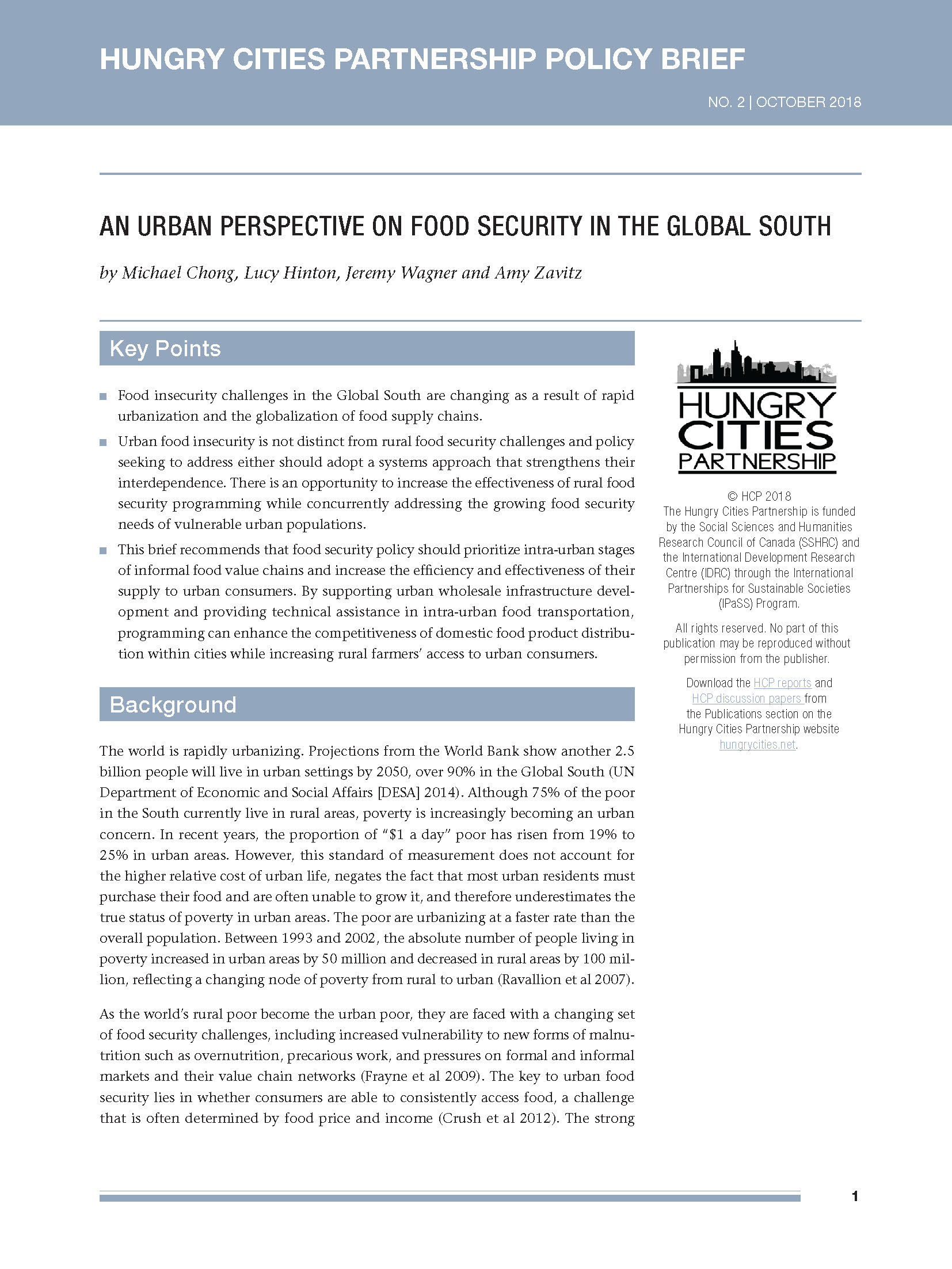The global food security policy community should reorient its actions on food security in the Global South to consider the urban food consumer. Since it is currently working with value chains in rural areas, we recommend that this view is extended into urban areas. Specifically, global and multilateral actors and national and local governments need to prioritize an urban food security agenda by engaging in and strengthening intra-urban value chains. This will have the dual result of lowering prices and increasing access for urban consumers, and ensuring that rural farmers have reliable access to urban markets. To elucidate this scenario, we suggest the adoption of one overarching and two secondary recommendations:
Food security policy should prioritize intra-urban stages of informal food value chains and increase the efficiency and effectiveness of their supply to urban consumers. There is ample guidance material available from the FAO and other multilateral organizations on how development partners and private sector actors can support this initiative. Based on this guidance material, possible entry points for involvement in intra-urban food value chain development in developing contexts include the following:
1. Supporting urban wholesale infrastructure development to enhance the competitiveness of domestic food product distribution within cities. Proper wholesaling infrastructure (food terminals, proper storage and refrigeration facilities) can support the efficient procurement of current and future quantities of domestic food products and reduce food waste and food product pricing.
2. Providing technical assistance in intra-urban food transportation, thereby further reducing food product pricing by removing the role of intermediaries and increasing the efficiency of distribution between urban wholesale markets and retailing.
By broadening current international assistance priorities to include intra-urban food value chains, policy can address emerging food security needs in urban centres while simultaneously strengthening current rural food production, value chains and agri-food enterprise initiatives. Enhancing the capacity for rural food producers to thrive can also promote urban food security insofar as all post-harvest drivers of food insecurity are recognized as priorities. This is an opportunity to increase the efficiency of current programming while concurrently addressing the growing food security needs of vulnerable urban populations. It is clear that the face of food insecurity is changing, and food security policies need to change with it.

